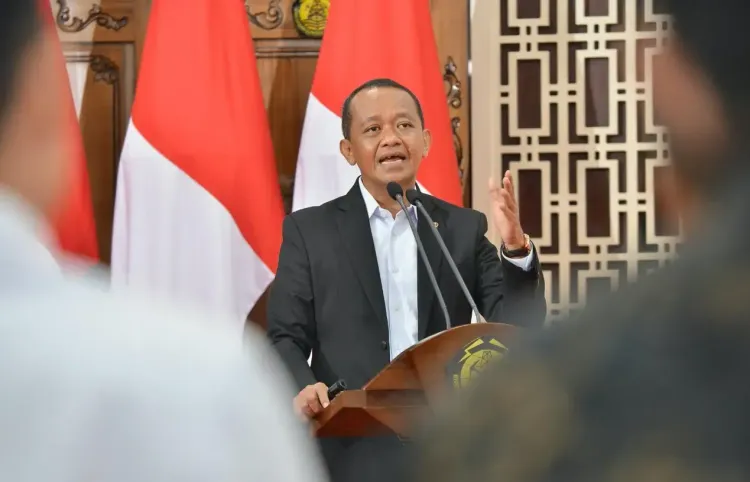Will Indonesia End Diesel Imports by 2026 with B50 Biodiesel Programme?

Synopsis
Key Takeaways
- Indonesia's B50 biodiesel initiative aims to eliminate diesel imports by 2026.
- Current B40 mandate has saved approximately 9.3 billion US dollars.
- Coal usage for power generation to be reduced to 30% by 2050.
- Transitioning towards cleaner and renewable energy sources.
- Focus on technological innovations to achieve net-zero emissions by 2060.
Jakarta, Oct 9 (NationPress) Indonesia is on track to eliminate diesel imports by the latter half of 2026 with the rollout of its 50 percent biodiesel (B50) initiative, as announced by Energy and Mineral Resources Minister Bahlil Lahadalia on Thursday.
Bahlil confirmed that the government is currently in the final stage of the fourth phase of road testing for B50 biodiesel, which is expected to conclude within six to eight months. These trials encompass various applications, including ship engines, trains, and heavy machinery, as reported by Xinhua News Agency.
"Provided everything progresses well and we opt for B50, we will cease diesel fuel imports in the second half of 2026," Bahlil stated during a press briefing in Jakarta.
The B50 program, which blends 50 percent crude palm oil-based biofuel with 50 percent conventional diesel, is a crucial element of Indonesia's long-term strategy aimed at enhancing energy independence and decreasing reliance on fossil fuels. This policy dovetails with the existing B40 mandate, which has already achieved 10 million kiloliters, equating to 64.7 percent of the 2025 target of 15.6 million kiloliters.
As per the ministry, the nationwide B40 implementation has saved Indonesia approximately 9.3 billion US dollars in foreign exchange.
On the same day, an official from the Ministry of Energy and Mineral Resources indicated that Indonesia aims to gradually lower its coal use for electricity generation from the current 55 percent to around 30 percent by 2050, pivoting towards more sustainable and renewable energy sources.
Siti Sumilah Rita Susilawati, secretary of the Directorate General of Minerals and Coal, mentioned that coal continues to be a significant contributor to the country's electricity supply.
"Currently, coal accounts for around 55 percent of our power generation. This proportion will be systematically decreased and replaced with renewable energy sources," Rita noted.
She acknowledged that while coal will continue to play a role in Indonesia's energy landscape by 2050, state-owned electricity provider PT Perusahaan Listrik Negara (PLN) has been directed to implement advanced technologies like ultra-supercritical systems to substantially reduce carbon dioxide emissions.
Rita admitted that achieving Indonesia's goal of net-zero emissions by 2060 cannot solely rely on diminishing fossil fuel usage. The government is focusing on energy blending and technological advancements to lower emissions.
"For instance, reducing fossil fuel consumption in the smelter sector is a promising starting point. We have mandated smelters to prioritize new and renewable energy as their primary energy source," she added.
Indonesia is aspiring for an 8 percent economic growth rate by 2029, while simultaneously making strides towards a low-carbon economy and realizing net-zero emissions by 2060.









